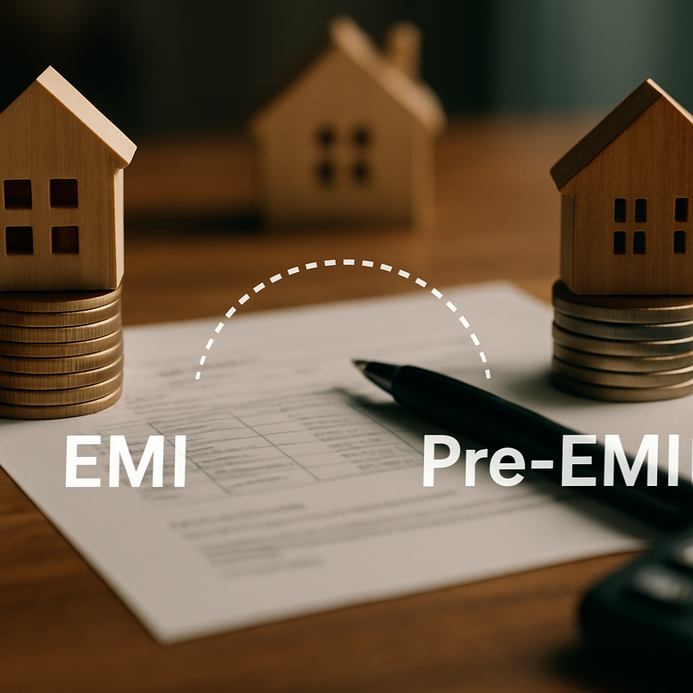Flat Investment with Friends or Siblings: The Hidden Truth You Need to Know
Introduction to Co-Investing with a Friend or Sibling
So, co-investing, what’s the deal? More and more folks are diving into this trend, especially when it comes to sharing ownership of a flat. It’s pretty appealing for those looking to snag a spot in the property market without going broke. Two or more people like your buddy or sibling, can all chip in together, sharing not just the benefits but also the responsibilities.
Why do people love this model? Well, for starters, it lightens the financial load. Pooling cash means lower down payments, which is a biggie for newbies. Want a quick rundown of the pros and cons? Here you go:
| Benefits of Co-Investing | Challenges of Co-Investing |
|---|---|
| Reduced financial burden | Potential for conflicts over decisions |
| Shared maintenance costs | Unequal financial contributions |
| Access to better properties | Need for clear legal agreements |
| Opportunity to learn property management skills | Exit strategy complexity |
Getting the whole co-owner vibe is crucial. Both parties need to be on the same page regarding how they’ll use the property, each person’s responsibilities, and how much cash each will contribute. This is especially important to grasp if you’re thinking about the long haul in property ownership.
Legal stuff? Yeah, it matters a lot. Setting up solid contracts defines the partnership and can help dodge future squabbles. Make sure to include terms covering profit sharing, maintenance, and how to resolve disputes. If you’re looking for some guidance, check out articles like “Home Loan Resale Property: Your Legal Guide” (Source) and “Understanding the Difference Between RK and BHK in Indian Real Estate” (Source).
Wrapping it up, co-investing has its perks, but you gotta plan it right. As the market shifts, weighing the pros and cons of going in with a friend or sibling is essential. If you want to dig deeper into smart investments in Hyderabad’s booming real estate scene, check out our articles on shared property investments and Hyderabad’s real estate market.
Unveil the 50-50 payment plan
Teaming up with a friend or sibling for property investment, like Jacob and Vasanth are doing, can bring a lot of benefits to the table. Let’s dive into why co-investing is such a hit, focusing on cost savings, shared responsibilities, and strengthening those connections.
Benefits of Co-Investing
| Benefit | Description |
|---|---|
| Affordability | Sharing costs makes property ownership much easier on the wallet. |
| Shared Responsibilities | Joint ownership means splitting maintenance and management duties, leading to less stress for everyone. |
| Stronger Relationships | Working together can boost trust and communication between co-owners. |
| Increased Knowledge | Co-owners can share insights about real estate, which leads to smarter decisions. |
| Flexibility | Pooling resources might unlock better properties and investment strategies overall. |
Before diving into co-ownership, understanding the legal agreements is key. You can find valuable insights in our guides on legal guides for buying real estate and documents needed for selling property.
When you’re informed and ready, the investment can turn into a rewarding venture, strengthening both friendship and professional growth.
Sure, co-owning a flat with a friend or sibling can yield great rewards, but it ain’t all rainbows. There are hurdles to navigate to keep the relationship intact and the investment protected.
Financial Disputes
One of the big issues? Money. Disagreements over finances can easily crop up. Different spending habits might lead to friction, especially if one person consistently puts in less for upkeep or bills. Setting clear financial agreements from the get-go can save a lot of future headaches. This Forbes article suggests a shared bank account for all ongoing expenses.
Differing Future Plans
Next up are those future goals. Picture it: you might be aiming for a long-term investment, while your co-owner is itching for a quick sell. It gets tricky. Regular talks about what both parties want are a must. Drafting an exit strategy helps keep everyone on track.
Emotional Complexities
Let’s talk feelings. Investing together can make personal relationships complicated. Financial stakes often heighten emotions. If disagreements flare up, it can lead to stress on the friendship or sibling bond. A Bloomberg article reminds us how important it is to check in with each other emotionally and to deal with conflicts delicately.
Understanding the co-owner meaning in a legal sense is key. You’re jointly responsible for everything from the mortgage to taxes and upkeep. Ensure both names are on all important documents, including the title deed. A legal expert can clarify everyone’s rights and duties, keeping everything above board.
Summary Table of Potential Drawbacks
| Challenges | Solutions |
|---|---|
| Financial Disputes | Set clear agreements; use a shared expenses account |
| Differing Future Plans | Regular check-ins; draft an exit strategy |
| Emotional Complexities | Emotional check-ins; manage disputes thoughtfully |
| Navigating Legalities | Know legal responsibilities; consult a lawyer |
Co-investing isn’t without its bumps, but knowing what to expect and being proactive can smooth out the journey. For deeper dives into property ownership, peek at our guides on home loan resale property and investment strategies.
Legal Considerations: Protecting Your Investment as a Co-Owner
Thinking about jumping into co-investing with a sibling or friend? Gotta hit those legal aspects first. Setting up a co-ownership agreement is your starting point. This document needs to lay out the terms, who decides what, how finances work, and what happens if one party wants out. Without this, conflicts can sneak up and throw a wrench in the works.
Understanding Property Rights
In co-ownership, both parties have equal rights to the property. This means sharing rental income, property access, and decisions about sales. It’s key to recognize different contributions, the co-owner meaning here matters. If one person puts in more cash, they might expect a bigger slice of the pie when it’s time to cash out. Put these details clearly in the co-ownership agreement.
Tax Implications
Owning together also means dealing with tax matters. As joint owners, knowing how property taxes and capital gains taxes impact sales or rentals is essential. Co-owners could gain some deductions, but they’ll need to file taxes together. You can claim property-related deductions based on ownership percentage, helping to lighten the tax load while boosting investment returns.
Protecting Interests: A Sample Table
| Legal Aspect | Description | Importance |
|---|---|---|
| Co-Ownership Agreement | A written document detailing ownership terms | Avoids disputes and defines rights |
| Property Rights | Claims to rental income and decision-making | Ensures fair use and management |
| Tax Implications | Understanding tax duties | Optimizes financial benefits and compliance |
To keep everyone’s interests protected, it’s smart to consult a real estate attorney who knows the lay of the land and local laws.
Need more resources? Check out these articles: Home Loan Resale Guidance, What’s a Conveyance Deed?, and Using Shared Amenities Right.
Conclusion: Making an Informed Decision
Thinking about investing in a flat with a friend or sibling? It’s a big step that calls for careful thought. Having a good grasp of the pros and cons, like sharing costs but also the potential for conflicts is important. Keeping lines of communication open around expectations, finances, and responsibilities makes a world of difference. Nail down a solid legal agreement to clarify roles, especially about ownership, to avoid squabbles.
| Key Considerations | Pros | Cons |
|---|---|---|
| Financial Sharing | Cuts costs for both parties. | Disputes over payments might arise. |
| Emotional Support | Shared duties ease the load. | Could strain the relationship. |
| Property Rights | Strengthens investment power. | Different priorities can create issues. |
Setting up some ground rules early on can cut down on misunderstandings later. Discussing responsibilities is a must. Also, look into the ownership structure for a clear understanding of the co-owner meaning legally. Be ready for challenges as life happens, financial situations change, lives shift. Engaging the help of a legal advisor ensures that agreements are solid and beneficial.
FAQ
- What is co-investing? Co-investing involves two or more individuals pooling their resources to jointly invest in a property, sharing both the risks and rewards.
- What are the legal considerations for co-investing? It’s essential to draft a co-ownership agreement outlining responsibilities, financial contributions, and exit strategies.
- What should I consider before co-investing? Consider financial compatibility, future goals, and communication to avoid disputes.
- How can I protect my investment as a co-owner? Ensure that all agreements are documented legally and consider consulting a real estate lawyer.
- What are the potential downsides of co-investing? Possible financial disputes, differing future plans, and emotional complications can arise during the investment period.













